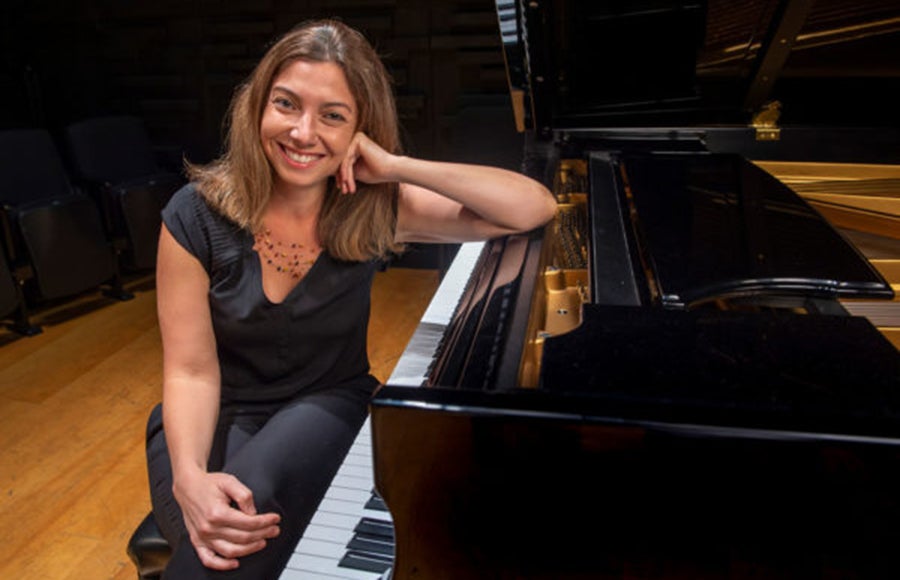
Neuroscientists’ research reinforces music’s impact on the developing brain
Children can learn communication, empathy, focus and decision-making skills just as well at a piano bench as they can on the soccer field or in the chemistry laboratory, according to Assal Habibi, a neuroscientist and psychologist at the USC Dornsife College of Letters, Arts and Sciences’ Brain and Creativity Institute.
Habibi, who began learning classical piano as a 5-year-old in Tehran, Iran, has spent the last seven years studying the effects of music on the brain in a group of children enrolled in the Youth Orchestra Los Angeles music education program. So far, the research indicates that musical training is beneficial for children’s brains, strengthening networks that process sound, language and communication as well as engaging areas that are responsible for decision-making, focusing attention and inhibiting impulses.
“[Music training] does have benefits across the board, and we see changes in their brain structure and function that are different from children who do not have any training,” Habibi said.

Habibi began playing piano at the age of 5.
Last fall, the National Institutes of Health (NIH) awarded Habibi a grant from the Sound Health Initiative, a partnership with the John F. Kennedy Center for the Arts with support from the National Endowment for the Arts. She will examine the differences in effects among children who are learning music and speak more than one language, as compared to children who know just one language.
“In the studies that we’ve done, we’ve come across this finding that musical training helps with executive function skills like impulse control and better memory,” Habibi said. “However, most of our participants were bilingual. We are curious to find out whether — and how — bilingualism and music training interact to boost executive function skills. We need to study this.”
For the next phase of Habibi’s study, the children will be interviewed, complete surveys and participate in brain scans, including at the Brain and Creativity Institute lab, where Habibi and her colleagues are gathering data that over time will show changes in their brains. The results will be compared to those of other children their age who are not receiving any musical training but who are also participating in the study as part of a control group.